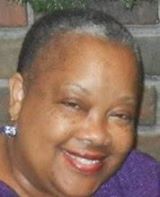Thinking about Martin Luther King, Jr. – Valerie Bridgeman
 I have a special affinity to Martin Luther King, Jr. with whom I share a birth day–he was born 30 years prior. I grew up admiring and loving him and wanting to be like him. I grew up hearing, “two great people were born on January 15.” And I felt the pressure of the notion that I should be “great” like King. History will judge me as it is judging and will judge him. But I will NEVER lead a movement in the way he did.
I have a special affinity to Martin Luther King, Jr. with whom I share a birth day–he was born 30 years prior. I grew up admiring and loving him and wanting to be like him. I grew up hearing, “two great people were born on January 15.” And I felt the pressure of the notion that I should be “great” like King. History will judge me as it is judging and will judge him. But I will NEVER lead a movement in the way he did.
Today, I am aware of how irritating King Day celebrations are to me. I’ve been trying to figure out why. Here are my initial thoughts.
I resist the notion of the “exceptional negro” and the “lone wolf” as the way we speak about King and the 1940s, 1950s, 1960s and beyond. It’s easy to tame a movement if one can tame the one man that people consider the “legitimate” leader of the movement. There were many leaders and even more activists in the movement. People took on the beast of brutal white supremacy and racism and lost their lives. Those people were young, old, black, white, Hispanic/Latina/o, Jewish, Christian, Muslim, Buddhist, atheists, non-religious, formally educated, not formally educated, poorly educated, wealthy, very poor, middle class, sexist, feminist/womanist, military, anti-military and on and on. I wish on King Day we owned the fact that he was an imperfect leader inspiring a mass movement that inspired other mass movements. I wish we didn’t need to deify our leader in order to respect him. I wish we didn’t have to act as if critiquing his foibles was an act of disloyalty and/or treason.
During the Civil Rights Movement, many people were jailed, beaten, shot in cold blood or hanged from trees. Students left school as they embraced the spirit of the times. Parents tried to stop them. Religious leaders used religion to try to temper the movement. The government used sanctions, death, surveillance and threats to try to stop them. And they kept coming. King got his courage from God, first, yes. But he also got it from those other young people (he was young, too, you remember?).
On MLKJr Day and beyond, I hope we will not merely reflect on his life, but also on the lives of people who helped to make him the Voice of the movement, especially the prophetic women who kept pushing the movement to righteousness. I say his name, yes. But I also say: Coretta Scott King, Viola Liuzzo, Rev. Dr. Prathia Hall, Mother Dorothy Height, Mother Ella Baker, Rosa Parks, Songbird of the movement Bernice Johnson Reagon, and many more. I think of all the high school and college students, black and white and otherwise (there were many Mexican Americans in midwest and western states, for example) who put their lives on the line for the Movement.
And beyond remembrance, I am challenged to take on the anti-militarism, anti-racism, and anti-poverty work that King embraced. As a womanist, I want also to challenge this legacy of blatant sexism, of his dismissing women or using them as props (or taking their work and calling it his own). Mumia Abu-Jamal’s reflection on King’s call reflects particularly on my concern. I want also to challenge the way he and other black leaders/preachers treat with disdain the man who was the architect of the March on Washington, Bayard Rustin, a gay black Quaker who helped put the theory of nonviolence into practice. Rustin mentored King in an existing tradition of nonviolence resistance.
I’m old(er) now. I had someone I admire tell me that I was important “to the movement” and someone else who strengthens me called me “brave.” I am important and brave, if I am, because I am a member of a movement for equity and justice, for righteousness and for peace. I will always withstand powers and principalities that destroy dignity and try to erase personhood. I will always oppose racism, militarism, making people poor, sexism, heterosexism, ageism, trans-antagonism, and any other death-dealing power that intends to shame, limit, or kill people. I am for loving the whole folk. And when I am called to lead, I hope I do it with some real recognition that I lead in a movement, among leaders. When I am called to follow, I hope I do it with some acknowledgement that we must support leaders who need the energy of the many to speak on our behalf. I wrestle my own elitism to submit to causes. I struggle with my own sense of inadequacies to take up mantles. I like to think King did too. And despite any propensity for egoistic grandiosity (demons that plague all leaders), I like to think he’d be irritated at the way we’ve deified him to the point of impotence.
Valerie Bridgeman is a biblical scholar and ordained minister. She is founding president and CEO of WomanPreach! Inc., a training organization designed to bring preachers and public speakers to full prophetic voice.

